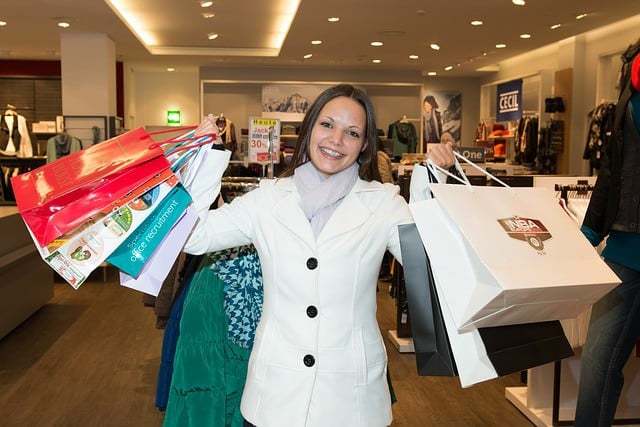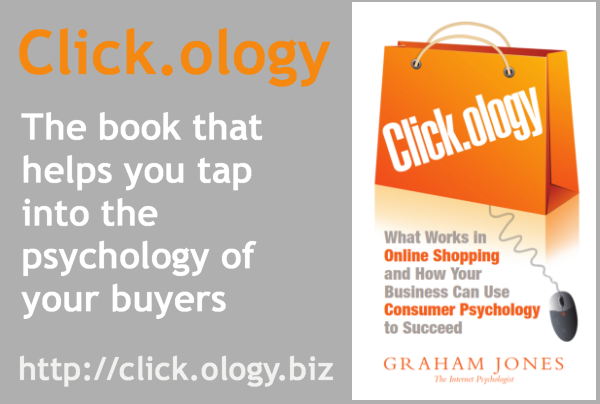
The three biggest online shops – AliBaba, Ebay, and Amazon – were not invented by retailers. The amount of online shopping on those sites dwarfs the spending on websites from traditional retailers. Indeed, the online stores of some retailers with more than 100 years of selling experience are only making the amount of money in a year that AliBaba, for instance, earns in a day. There is a huge gulf between the top online retailers and many traditional High Street brands.
So what is going wrong? Why are many experienced retailers failing to make the grade online?
The answer is preconceptions. All those years of experience tell those traditional Main Street stores exactly how customers behave. They know where to put things in a bricks and mortar store to make the most money (the most profitable items are always at eye level, for instance). Those traditional retailers also know the way you move around their shops, or what makes you more likely to part with your cash (the lighting is essential in creating the right spending mood). But what they don’t seem to realise is the fact that people behave completely differently when shopping online.
Amazon, Ebay and AliBaba were started by individuals from the finance, technology and education worlds. They had no idea how people bought. Similarly, the UK fashion success story, Asos, was started by people from the film and TV props hire business – again, no idea about shoppers. Yet, their online store is hugely successful.
All of these businesses have one thing in common; they had no preconceived ideas about shoppers and so they started with a blank sheet and learned from what people did on their website. Indeed, Amazon built its own software to continuously learn from its customers; every action you take on their site helps them understand even more about the behaviour of their customers.
So, what are the traditional retailers doing wrong?
Part of the answer to that came in a BBC Radio 4 phone-in programme, Call You and Yours, during which listeners discussed their frustrations with online shopping. A key theme that emerged during the programme – which was also reflected in the associated social media activity using the hashtag #youandyours – was the notion of convenience.
The effective online stores make it easy for shoppers to go directly to what they want. Indeed, their products can be found quickly using a Google search. This is reflected in a research study conducted for the BBC which revealed that 42% of people start their online shopping journey in a search engine – and not on a retailer’s website. Shoppers enter what they want into a search engine and the click on the product result that is presented to them. More often than not, those results come from the leading online shops, set up by people with no retail experience.
Meanwhile, you can visit several traditional online High Street shops and discover that they want you to browse their store, often presenting items in the same “aisles” as they use in the real world bricks and mortar stores. It is as though they are trying to recreate an online version of a physical store. It is an indication that these stores have not noticed that people behave differently online than they do in physical shops.
So, those struggling traditional retailers introduce concepts like “click and collect”, which sounds as though it is convenient. By doing so, they often reduce the physical store’s offering because if you want something you can go online and get it. The problem for shoppers is that the convenience of the real world store is diminished because the variety of products is lowered and they cannot “showroom” – see everything in store before buying online.
Some callers to the BBC programme were annoyed that real world stores were making things less convenient. Similarly, other callers and social media commentators who loved the convenience of online shopping were frustrated by the lack of product knowledge or expertise – something they could get with an experience real-world retailer. (By the way, I know these calls took place, as I was the expert studio guest, providing some insights into shopper behaviour.)
The research conducted for the BBC by Savvy Marketing also showed that younger generations are shopping in completely different ways to their parents. Many retailers have yet to take this into account, it seems.
Many online stores are reducing the convenience of being able to find exactly what you want, getting it and then moving on, by introducing a variety of techniques for upselling and cross-selling, which just frustrate and annoy people. Meanwhile, real-world stores are cutting down the convenience of being able to get what you want in town, by pushing more and more product lines to the Internet.
Retailers appear to have forgotten that convenience is central to shopping, as is making it an enjoyable experience. And there were some people who called the You and Yours phone-in the other day who apparently did not enjoy the experience of shopping either online or in the real world. Retail is struggling, but it does seem there is a great deal it could do to help itself by ditching pre-conceived ideas about shoppers and getting to understand how people behave online better.
Plus, if they did that, they could boost their real-world sales too. Most people’s experience online is being able to get what they want instantly. They are used to finding what they want straight away. What do real-world retailers do in their bricks and mortar stores (increasingly)? They keep changing layouts and shop design, making it harder for people to find things. This just increases frustration with real world stores, sending more people online where they search on Google and end up on Amazon.
Retailers are not really helping themselves – they are often helping those Internet upstarts who came into the world of shopping with no experience.

